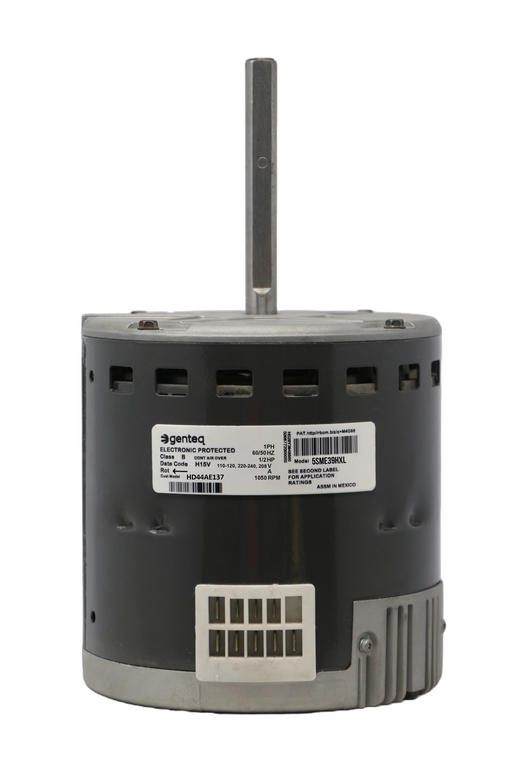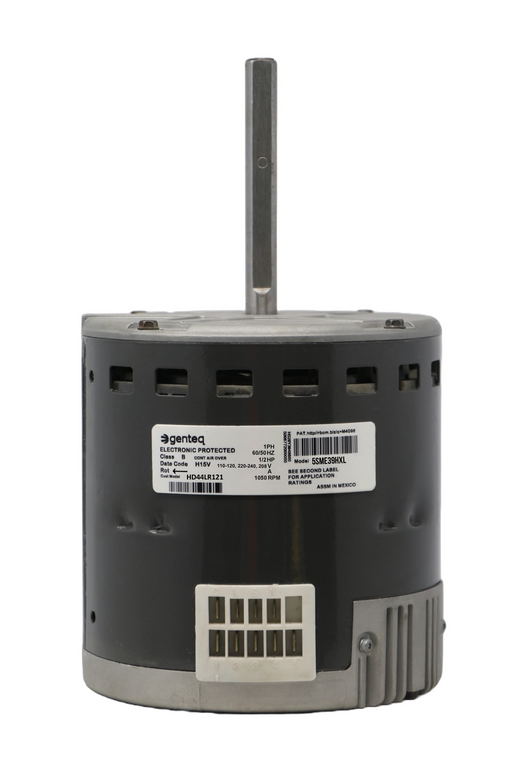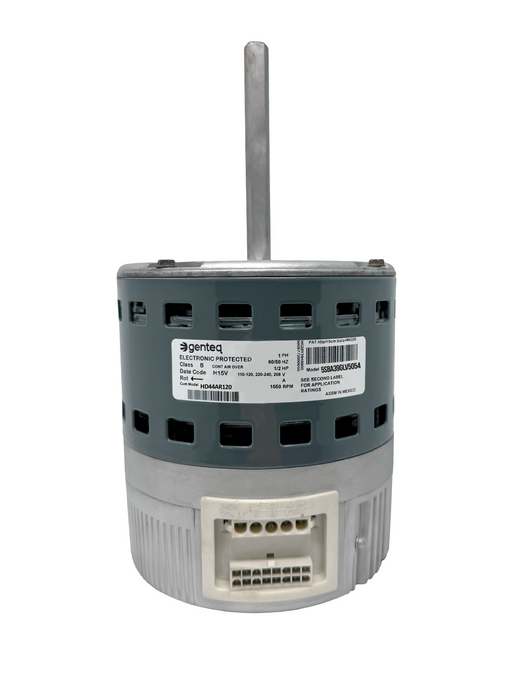(813) 440-8108

Carrier HVAC Review and Prices of 2025
Carrier’s legacy as the inventor of modern air conditioning still commands respect in 2025, and its premium engineering continues to position it among the top HVAC brands in the U.S. Known for quiet performance, advanced efficiency, and intelligent control systems, Carrier is favored by homeowners who view their HVAC system as a long-term investment—not just a commodity.
But Carrier’s high-end approach comes with tradeoffs: upfront cost, technician dependency, and a more proprietary ecosystem. This review goes beyond brand prestige to analyze Carrier’s real-world performance, long-term value, and what to expect from both homeowners and service professionals who live with these systems every day.
What Homeowners Report
Carrier’s reputation for high performance and reliability holds up across review platforms, but some owners note that premium quality comes with premium maintenance costs.
-
Google Reviews (average 4.2 stars across 300–600 reviews per dealer): Positive reviews cite ultra-quiet operation and consistent performance: “It keeps my house perfectly cool and I never hear it kick on.” Negative feedback generally involves cost: “The price was double other quotes, but it runs great.”
-
Yelp (average ~3.5 stars): Reviews highlight excellent system performance but mixed installer experiences: “Love the unit, but my local dealer didn’t return calls during a heat wave.” Installation quality clearly impacts satisfaction.
-
ConsumerAffairs (~3.0/5): Some users experienced part failures post-warranty or found replacement parts expensive. Typical complaint: “It ran beautifully for 9 years, then the compressor died and the fix wasn’t cheap.”
Bottom Line: Homeowners generally love Carrier’s comfort and energy savings—when installed properly and maintained annually. When those standards aren’t met, repair costs and warranty limitations can frustrate.
In-Depth Technical Analysis
Carrier’s residential HVAC lineup includes central air conditioners, heat pumps, gas furnaces, air handlers, and ductless mini-splits. Their systems lean heavily into energy efficiency, intelligent controls, and quiet operation—especially in the Infinity® series.
Variable-Speed & Greenspeed® Intelligence
Carrier pioneered variable-speed compressor technology with their Greenspeed® Intelligence, available in top-tier models. These systems continuously modulate to maintain stable indoor temperatures and humidity while minimizing energy use. In practice, this means better comfort with less cycling and lower utility bills.
Communicating Control Systems
Carrier’s advanced systems use proprietary communicating thermostats, such as the Infinity Touch Control, which allow remote diagnostics, real-time performance tuning, and integration with smart home platforms. However, this adds complexity and typically requires certified Carrier installers for setup and troubleshooting.
Blower Motors (ECM Standard)
Carrier systems use ECM (Electronically Commutated Motor) blowers in most models, even mid-range. These motors adjust airflow based on demand, improving efficiency and comfort. While more efficient than PSC motors, ECM failures can be costly to replace and must often be OEM parts.
Cabinet Design & Coil Durability
Carrier units feature heavy-gauge galvanized steel cabinets with baked-on powder coatings, stainless steel heat exchangers in furnaces, and WeatherArmor™ coil protection. Coil designs include aluminum microchannel or copper tubing with aluminum fins, both treated for corrosion resistance.
Efficiency Ratings
Carrier offers systems up to 26 SEER2 and 98.5% AFUE, placing them at the top of the industry for energy efficiency. These ratings translate to long-term savings—especially in hot or cold climates—but real-world performance depends heavily on ductwork and installation precision.
To confirm product availability please call (813)440-8108. Some items might be in stock but not yet prepared to be shipped.
Remanufactured Motor by United HVAC Motors
2 Year Replacement Warranty (Terms Apply)
Plug n Play - 100% Programmed
Match your Motor Model N...
Remanufactured Motor by United HVAC Motors
2 Year Replacement Warranty (Terms Apply)
Plug n Play - 100% Programmed
Match your Motor Model N...
 Sold out
Carrier HD44AE137 Blower Motor ECM X13 1/2 HP
Sold out
Carrier HD44AE137 Blower Motor ECM X13 1/2 HP
Carrier HD44AE137 Blower Motor ECM X13 1/2 HP
Carrier HD44AR120 Blower Motor ECM EON 1/2HP
Expert Rating Breakdown
|
Criterion |
Rating |
Notes |
|
Build Quality & Durability |
9/10 |
Heavy-duty construction, long part life |
|
Energy Efficiency |
9.5/10 |
SEER2 up to 26, AFUE up to 98.5% |
|
Reliability & Longevity |
9/10 |
Lifespans of 18–22 years with proper care |
|
Ease of Installation & Service |
6.5/10 |
Complex systems, requires trained techs |
|
Availability & Cost of Parts |
7.5/10 |
Some parts are proprietary, pricier |
|
Customer Support & Warranty |
8.5/10 |
Strong if registered and maintained |
|
Overall Expert Score |
8.5/10 |
Premium quality and performance—but not DIY-friendly |
Pros & Cons of Carrier HVAC
Pros
-
Top-tier energy efficiency (SEER2 up to 26, AFUE up to 98.5%)
-
Ultra-quiet operation, ideal for bedrooms or urban settings
-
Smart home compatible via Infinity Touch and Wi-Fi control
-
Reliable performance in extreme climates
-
Strong warranty when registered with certified install
Cons
-
High upfront costs (often 30–50% above value brands)
-
Proprietary parts and controls limit DIY servicing
-
Requires trained Carrier technicians for optimal setup
-
Warranty void if not installed or maintained per Carrier guidelines
Carrier Pricing (2025 Installed)
|
System Type |
Estimated Cost (USD) |
|
Central AC (SEER2 14–26) |
$4,500 – $8,500 |
|
Heat Pumps (2-stage/variable) |
$5,500 – $9,000 |
|
Gas Furnaces (80–98.5% AFUE) |
$3,500 – $6,500 |
|
Air Handlers |
$2,000 – $4,000 |
|
Ductless Mini-Splits |
$3,000 – $6,500 per zone |
Pricing includes standard installation. Custom ductwork, zoning, or multi-system configurations may increase total cost 25–50%.
Carrier Warranty Overview
-
10-Year Limited Parts Warranty (registration within 90 days required)
-
Lifetime Heat Exchanger Warranty (select furnace models)
-
10-Year Compressor Warranty (Infinity/Performance systems)
-
Labor Coverage: Optional, varies by dealer and region
Key Requirements:
-
Professional installation by Carrier-authorized dealer
-
Annual maintenance (keep proof for claims)
-
Online product registration
Popular Carrier Products (2025)
|
Product Type |
Model Example |
Key Specs |
|
A/C |
Infinity 26 |
Variable-speed, up to SEER2 26 |
|
Heat Pump |
Infinity 24 |
Greenspeed®, ultra-quiet |
|
Furnace |
Infinity 98 |
Modulating gas, 98.5% AFUE |
|
Air Handler |
FE4A |
ECM blower, Infinity-compatible |
|
Ductless |
Toshiba-Carrier Series |
Up to SEER2 23, inverter-driven |
How Carrier Stacks Up
-
Vs. Goodman: Carrier is far more advanced in efficiency, humidity control, and quiet operation. Goodman wins in initial affordability and repair simplicity.
-
Vs. Trane: Comparable in premium performance. Carrier excels in user interface and smart integration; Trane often leads in raw coil durability.
-
Vs. Lennox: Carrier systems are easier to service and install than Lennox’s tightly integrated designs, though Lennox may edge it in extreme weather performance.
Is Carrier Right for You?
Carrier is a strong fit if you:
-
Plan to stay in your home long-term (10+ years)
-
Value low noise, superior humidity control, and energy savings
-
Have access to qualified Carrier dealers
-
Don’t mind higher upfront investment for better comfort and reliability
Avoid Carrier if:
-
You’re on a tight budget or prioritize DIY servicing
-
Your area lacks certified Carrier installers
-
You need a simple system for a rental or short-term property
Final Verdict
Carrier delivers exceptional comfort, quiet operation, and peak energy efficiency—especially in its Infinity and Performance series. It’s an investment in long-term performance, not a budget fix. With proper installation, annual maintenance, and system registration, a Carrier system can deliver 15–20+ years of reliable service with minimal intervention.
🔧 Technician Tip: Carrier systems shine when installed with full commissioning (including static pressure tests, refrigerant subcooling checks, and proper thermostat setup). Don’t cut corners—installation quality makes or breaks these systems.
FAQs
Is Carrier worth the price?
Yes—especially if you want top-tier comfort, efficiency, and a quiet indoor environment. But only if installed and maintained properly.
Can I use a non-Carrier thermostat?
Only with basic (non-communicating) systems. Infinity series units require Carrier’s own communicating thermostats.
What are common Carrier failure points?
Older systems: defrost control boards or ECM motor issues. Newer units: relatively few reported failures when maintained.
How long does a Carrier system last?
18–22 years with professional maintenance. Cheaper systems typically last 10–15.
Can I install Carrier myself?
No—self-installation voids the warranty, and most Infinity units require dealer software and commissioning tools.
To confirm product availability please call (813)440-8108. Some items might be in stock but not yet prepared to be shipped.

 Sold out
Carrier 58MEB060F10112 Blower Motor X13 1/2 HP
Sold out
Carrier 58MEB060F10112 Blower Motor X13 1/2 HP
Carrier 58MEB060F10112 Blower Motor X13 1/2 HP
Remanufactured Motor by United HVAC Motors 2 Year Replacement Warranty (Terms Apply) Plug n Play - 100% Programmed Match your Motor Model N...
View full detailsTo confirm product availability please call (813)440-8108. Some items might be in stock but not yet prepared to be shipped.

 Sold out
Carrier 58MEC060F10112 Blower Motor X13 1/2 HP
Sold out
Carrier 58MEC060F10112 Blower Motor X13 1/2 HP
Carrier 58MEC060F10112 Blower Motor X13 1/2 HP
Remanufactured Motor by United HVAC Motors 2 Year Replacement Warranty (Terms Apply) Plug n Play - 100% Programmed Match your Motor Model N...
View full details

